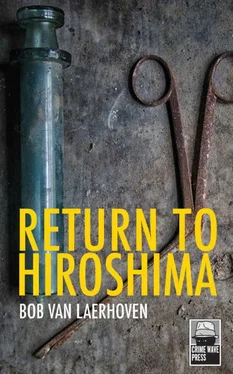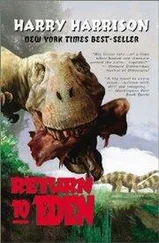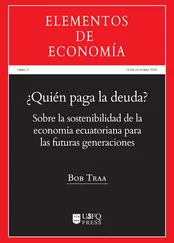Hiroshima – Suicide Club squat – Kabe-cho – Reizo Shiga – night, March 15 th1995
Reizo Shiga tilts his head as if he’s listening to something. He looks around the poorly lit room. The third futon on the floor belonged to him and Yori. He treated Yori like a pin-up, but deep in his heart he always feared the day she would see through his disguise. He leaves the main room, descends the stairs to the cellar, heads for his improvised office and sits in front of his computer. He opens the file with the text of his novel, rereads the final paragraph and starts to type. A few sentences later he shifts to a new document. He sits for a while, motionless, his fingers resting impotent on the keyboard. When the undersecretary of Aum Shinrikyo told him in exchange for drugs that the woman the sect members were looking for was the daughter of a shadowy kumicho by the name of Rokurobei, a plan started to mature spontaneously in his head. Convinced that fate had led the daughter of a powerful organised crime leader into his group, he wasn’t about to just hand her over to the sect’s leader Shoko Asahara without something in return. As always, the plan to exchange Mitsuko for power and influence started as a vivid daydream. And as always, he had been unable to make a distinction between his own dream world and that strange, confusing, frightening thing other people call reality. He hadn’t dared imagine that Mitsuko would put up such a fight. He had wanted to play with her, like he liked to do with people, but the game had gotten out of hand. To his great surprise, he realised that his life had always been like that, wild, out of control. The anxiety that accompanied this conclusion grabbed him by the throat. He had to go back to the metro tunnel , immediately , set Mitsuko free, offer her his apologies, convince her that he didn’t know what he was doing most of the time, and hope for the best.
He remains at his computer, waiting for the moment to get up and carry out his plan. But it doesn’t come. Past and present mingle anew in his head to create a new story. As an adolescent he had poured over hundreds of photos of the young David Bowie. When he was fifteen he bought a jack-knife. He had always been terrified of being mugged, but he also secretly hoped that someone would try just to see if he would have the guts to use it. In those days he wrote jisei no ku , death poems in which he tried to get “drunk on death”.
He waits for a long time, then starts to type. Instead of a new scene in his novel he writes:
I never wanted to be born. I never wanted to be so lonely and so venomous.
Hiroshima – Nagarekawa district – gay bar Splash – 1-23 Yagenbori – Takeda, Adachi, Yori and Becht – night, March 15 th1995
Takeda, Adachi, Yori and Becht are huddled together in an alcove in the gay bar. Yori has the least to say of all four, but she’s listening carefully to the others. Beate Becht tells Takeda how sorry she feels for him, then tells him again. Adachi repeats what Yori told him about her friend Mitsuko. He insists that fate brought them together. He hands Takeda the documents Yori gave him, Mitsuko’s documents. The inspector has a quick look at them and they put his head in a spin. He now understands why Adachi arranged to meet him at a bar where no one would expect to find them and not at the inspector’s home.
As they try to unravel the puzzle, it becomes clear that each of them has a unique perspective that can help clarify the situation. They’re all agreed that Takeda has to go into hiding. The police statement Adachi picked up on the radio at his apartment was crystal clear: Takeda is suspected of killing his wife in a domestic quarrel and every unit in the Hiroshima prefecture is looking for him. Every cop in the city knows the score and they’re all on the lookout for the inspector. Takeda’s wife died at home from multiple stab wounds. The knife was from the kitchen in their apartment. There were no signs of a break-in. Chief commissioner Takamatsu issued the arrest warrant in person. The magistrate who signed it has been a close friend of Takamatsu for decades. Everything is pointing towards a set-up, but they have no evidence. How do they prove it?
Yori explains in detail what Mitsuko told her before she disappeared: about her father – the mafia boss known as Rokurobei –, his Yuzonsha group, and the abandoned island of Hashima he uses as his operations base. She adds that, according to Mitsuko, the murdered ceo of the Dai-Ichi-Kangyo Bank was one of the members of Rokurobei’s criminal fraternity. Adachi and Takeda are forced to conclude that Takamatsu must also be a member of the Yuzonsha, or at least in their pay.
“What’s the next step?” Adachi asks. In spite of the tricky situation, there’s a sort of familiarity in the group, as if they’ve known each other for years.
“Can I make a suggestion,” says the photographer hesitatingly.
“I’m all ears,” says Takeda.
Beate points at the documents: “If I understand it right, the chief commissioner belongs to a band of criminals that wants to cover up the attack on the bank because it has to do with Japan’s wartime past. If you ask me they’re not going to stop there if they want to keep their boss’s identity a secret. I’ve heard enough to figure that Japan would be turned upside down if the true identity of Rokurobei were to be exposed.”
“Are you suggesting I contact Takamatsu and offer him the documents in exchange for my safety?” says Takeda.
“You make the suggestion but you don’t go through with it,” the photographer answers. “And that’s why we need to go to my hotel room first.”
Notes from Mitsuko’s basement prison
Go away, my son. You’re not real. I left you behind as a sign for your father, my father. I didn’t want you to live when you slithered out of me, far too slimy, without even a cry of anger. Even then your indifference was complete, so don’t pretend now that you’re grieving the loss of your life. I can see the umbilical cord around your swollen neck, I can see your parched tongue. That is no big deal. My tongue is parched too. Be happy you’re already dead. I still have to face my end, and the thought of it pains me in the very place you spent so many months in hiding, kicking me now and then.
I begin to fear that Reizo Shiga isn’t coming back. His tragedy threatens to become perfect and he’s not even here to write it all down. Your presence is all that I have, my son, but I still want you to go. You’ve suffered enough. You weren’t destined to live, just as it would have been better if my father and me had never lived. Your life would have been a misery, populated by therapists, social workers and, who knows, perhaps even machines to help you move and talk. Don’t pretend you’re not a monster. You were deformed, helpless. Death was the best for you. I dressed you like the baby I found deep in the cellar on Hashima, years ago, embalmed, a chrysanthemum on its right heel and birth and death certificates with the seal of the imperial physician who had filled the small corps’ veins with formalin and the eye sockets with caustic soda. According to the documents, they also used zinc acetate, salicylic acid and glycerine.
That baby looked just like you, my poor son, just like you.
I was thirteen and had developed an interest in the history of the island. When I looked up at the sombre ruins against the dark grey sky, I imagined I could hear voices and sensed a hand with wispy fingers reaching towards me from behind, trying to grab my hair. Such thoughts left me with a strange feeling in my belly, a terrified ecstasy. I enjoyed fantasising that there was a curse on the place and that my father and me lived here because humanity had rejected us. I wandered for hours in and out of the apartments the mineworkers had once lived in, trying to picture what they would have been like when they were occupied. My father told me that the Chinese and Koreans who had worked in the mines deep below sea level had been treated like animals. The first time I made my way down to the cellars that gave access to the mineshafts I trembled from head to toe, but I enjoyed every second. Just before descending the broad staircase, I looked up at the sky: greenish-grey with clouds hanging like smoke over the rust-coloured ruins. The crumbling dilapidated walls stood out against the dirty white colossal chimney that rose from the ground behind the buildings. I descended the grimy stairs that gave access to the cellars where the mineworkers changed before they clambered down into the narrow shafts that brought them deep underground, far below sea level. I imagined I could smell them in their underground vault. There were still a few dusty overalls in the changing room, overalls the men had worn and left behind. They had become thin as paper and had the colour of stale rice. Because life on the island was a treeless existence, the only colours I trusted were dull shades of brown, grey, slate, the sombre indifference of the empty windows in the apartment buildings. I kept a close eye on the uniforms, afraid they might come to life at any moment. Bits and pieces of miner’s tackle were scattered here and there, including half a motorcycle. God only knows how it got there.
Читать дальше












